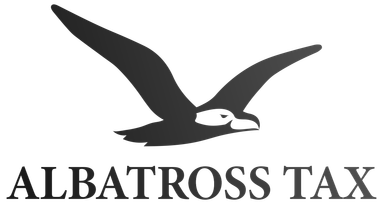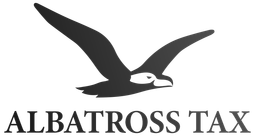Introduction to Falkland Islands Tax for Companies
This guide is designed as a basic overview of Falkland Islands taxation for companies. As always, if you have any queries, you should feel free to contact us. An initial query is always free of charge.
Introduction
The Falkland Islands has its own tax regime for corporation tax. Whilst an understanding of the UK tax system is beneficial, the Falkland Islands has its own distinct laws, and knowledge of UK tax should not be relied upon as a starting point for the Falkland Islands.
This guide is meant as a basic overview only, the corporation tax rules are complicated and varied, there is little crossover from one company to the next, especially if they are not based in the Falkland Islands. If you have any queries at all, or are thinking of working in the Falkland Islands, please get in touch.
Oil Contractors
There are separate rules for those involved in the oil industry, there are various special rules and differing tax rates. This guide does not cover those rules.
Military Contractors
Military contractors pay corporation tax in the Falkland Islands on the same basis as any other. This guide can be applied to military contractors although there is some separate legislation that may assist in certain circumstances such as the potential opportunity to become a designated employer.
Company Residence
A company is resident in the Falkland Islands if it is incorporated here or its central management and control is exercised in the Falkland Islands. The company will be liable to corporation tax on its worldwide profits.
Otherwise, the company is non-resident and it is taxable on its profits from the Falkland islands and its territorial waters.
If the company is UK controlled, then the UK/Falkland Islands Double Taxation Treaty will apply. If this is the case then it will only be taxable here if it operates through a permanent establishment. There are many issues with interpreting the treaty on this point and we recommended contacting us for advice.
The Falkland Islands has no other tax treaties, we do not see this changing in the near future.
If you wish to incorporate a company in the Falkland Islands, this is possible and we can advise on the process. It should be noted that it is not as simple as registering with the UK’s Companies House.
Corporation Tax rates
The first £500,000 of profits are taxable at 21% and anything over is taxed at 26%.
The £500,000 threshold is apportioned based on the number of worldwide associated companies.
Accounting Periods, Filing and Payment Dates
Corporation tax is chargeable for an accounting period. Usually this will be twelve months, but there are various rules as to when a period starts and ends, notably when you commence or end Falkland Islands activity.
The Falkland Islands has a pay and file system, with the corporation tax due 8 months and 1 day after the end of the accounting period. The CT return, CT computation and accounts (both branch and worldwide if appropriate) are due 9 months after the accounting period
NOTE: You will not be told or reminded you are liable to pay CT. It is not the role of the Falkland Islands tax office to find you, tell you or assist you with filing.
If you file late, you will be charged a penalty that starts with £100 and goes up over time to £1000 + 20% of the CT not paid. Interest will also be charged if the payment is late, the rate is based on the Standard Chartered Bank (Stanley branch) loan rate, and currently runs at more than 10%.
For non-FI resident companies, a statement of income and expenditure covering its FI activities is also required.
Rights of Enquiry
Unlike the UK, there is no enquiry window with regards to Corporation Tax. The Falkland Islands tax office has six years to raise an assessment in all cases, and can go back 20 years in cases where fraud or neglect can be shown. This gives the tax office wide powers to go back into previous years.
Expenditure
You may claim expenditure against any income, but it must satisfy the general expenditure tests and not be specifically disallowed (or have its own rules). The expenditure must be wholly and exclusively for the Falkland Islands activities and not be capital in nature (amongst other things).
The Falkland Islands has a capital allowances regime referred to as Depreciation Allowances, that is quite generous and will apply to certain assets.
Transfer Pricing
The Falkland Islands tax legislation has rules regarding transfer pricing, and all connected party transactions need to be calculated on an arm’s length basis.
Overseas Tax
If a company suffers overseas tax on the same profits as the Falkland Islands, there may be the opportunity to claim double taxation relief.
Losses and Group Relief
Where a company makes a loss, this can be offset against other income in the same period, carry the loss forward or, in more limited circumstances, carry it back
There may be scope to claim group relief if there is another FI resident company with profits within the same group.
Employers Responsibilities
Like any other business, if staff are being engaged, there is a requirement to deduct Payments on Account of Tax (POAT) and Retirement Pension Contributions (RPC) from their wages and pay and return this to the Falkland Islands Tax Office.
Final thought
The Falkland Islands Tax Office deals with around 200 companies per year, and each return is manually processed and reviewed. A review of your tax affairs with queries, is a near certainty. You should always ensure your tax affairs in the Falkland Islands comply with the Falkland Islands legislation.
Preparing returns using experience gained in the UK or similar countries is unlikely to be correct and there is a strong likelihood you could have missed out on reliefs or miscalculated deductions.
We are here to help in all aspects of Falkland Islands tax legislation, from a simple check of CT computations to a fully holistic service for your total Falkland Islands tax affairs. Feel free to contact us to discuss what requirements you may have.

